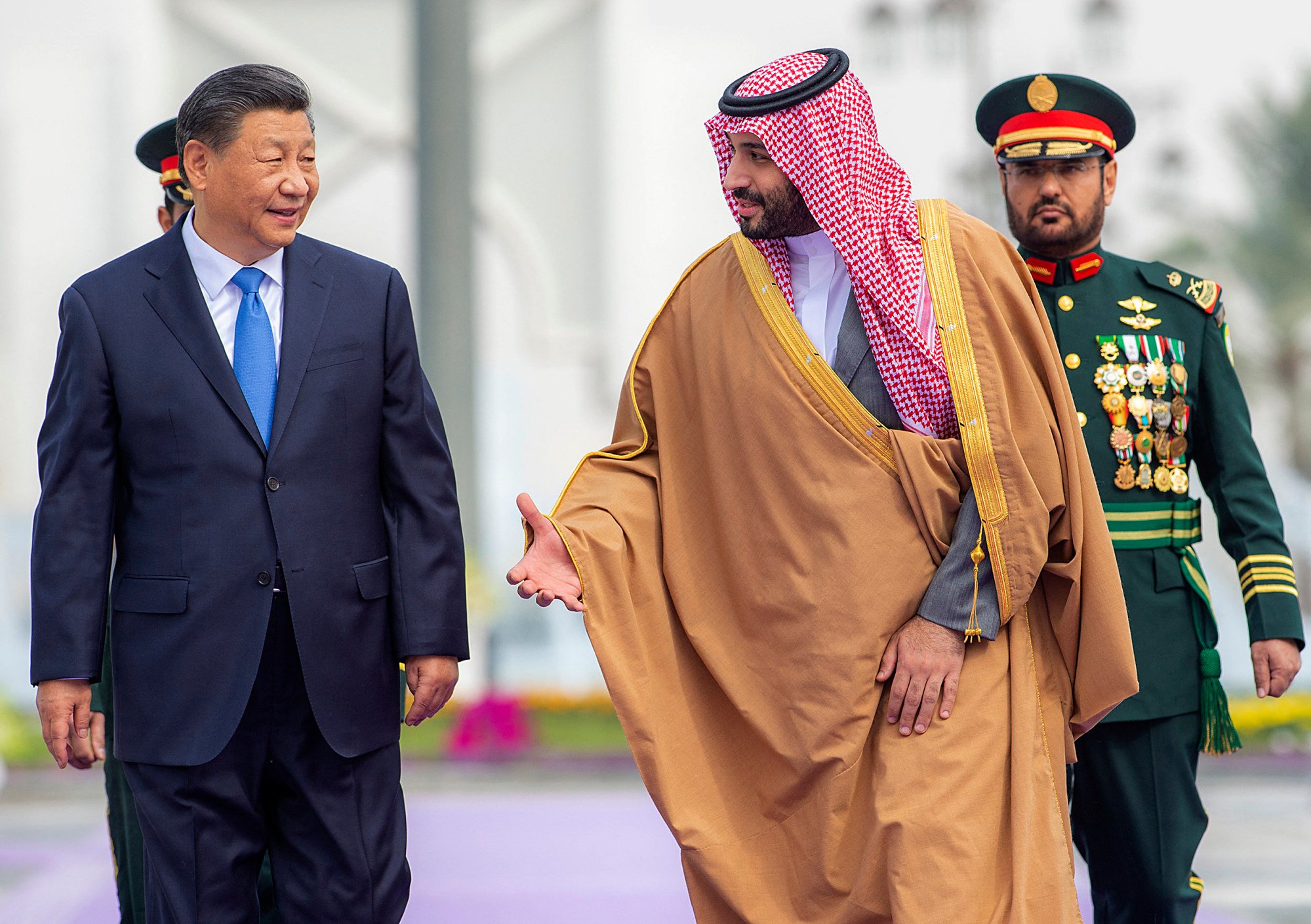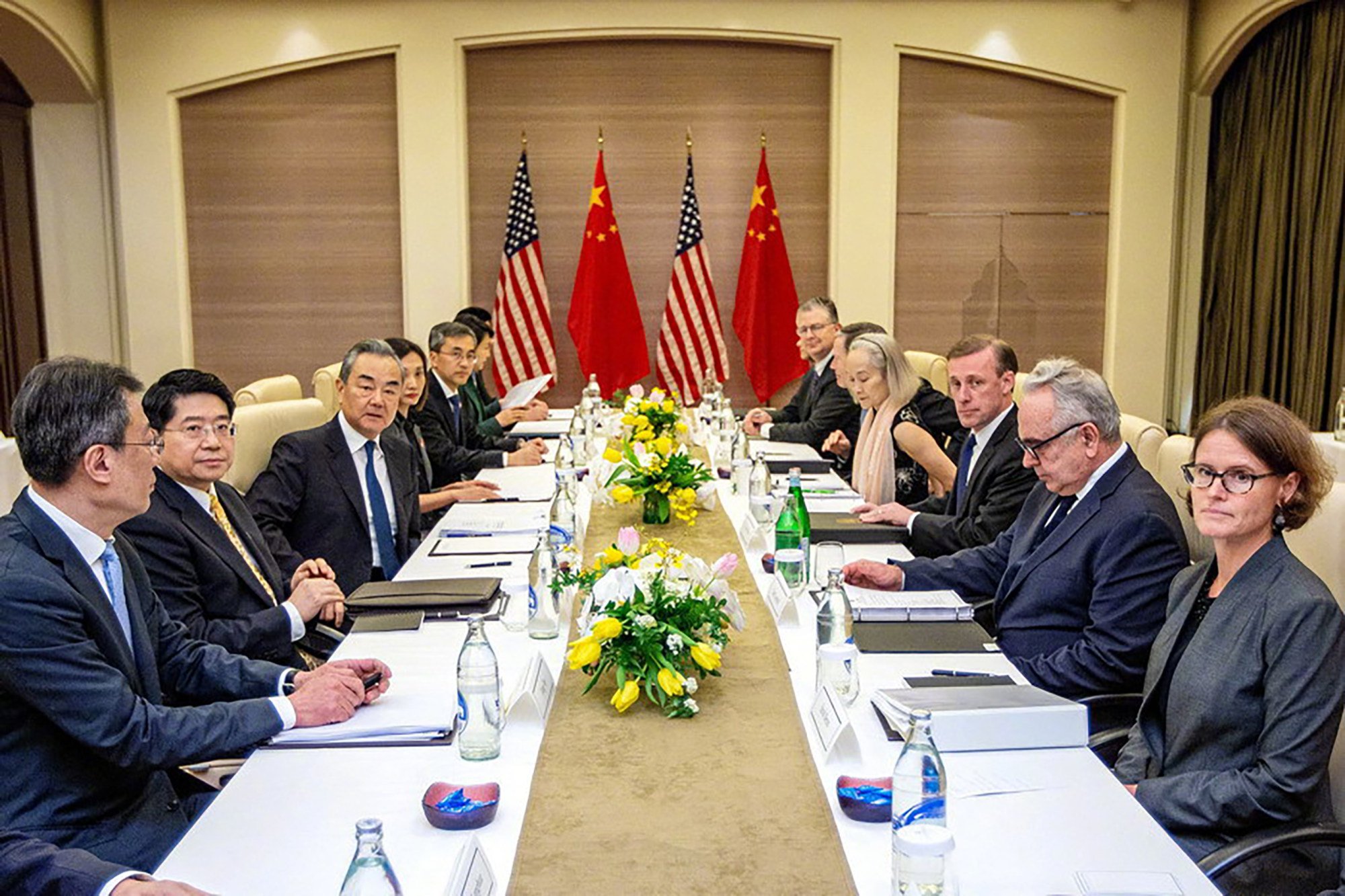“There is no desire to play a role. There’s just a desire to sit at the grown-ups’ table,” Alterman said.
“China’s goal is partly to quietly enjoy the fact that the US is getting bruised here, but also to try to use the conflict in Gaza as a way to rally the Global South against the United States,” he added.

In response, the prince stated that the two nations were entering a “new historic phase in relations,” and highlighted China’s policy of “non-interference” in domestic issues.
In 2023, China and Saudi Arabia signed a monumental national currency swap deal, valued at around 50 billion yuan for 26 billion Saudi riyals, or roughly US$7 billion.

In November, Xi advocated for a ceasefire and the establishment of humanitarian channels into Gaza, though Chinese diplomats have abstained from directly mediating peace talks.
Experts said diplomatic rapprochement with China serves the interests of regional players by setting an example: a rising global power that has refused to embrace liberal values or push for reforms in its domestic policies that suit US interests.
[China] has tremendous interest [in the region]. That doesn’t necessarily mean it has tremendous influence.
But the delicate balance of forces in the Middle East has proved more difficult than Beijing could have expected. Jonathan Fulton, a fellow in the Atlantic Council’s Middle East programme, said that Hamas’ attacks on Israel in October and the start of the war in Gaza showed the limits of what China can do in the region.
Fulton also said that there was an “exaggeration” in the way Chinese participation in the rapprochement between Saudis and Iranians was reported.
He recalled that several actors in the region, especially Iraq, were responsible for “most of the heavy lifting in the deal that was announced” and that they turned to Beijing because “they needed a great-power sponsor and China, with its comprehensive strategic partnerships, was able to play a role that no other great power could”.
“I don’t think that necessarily means that China had a whole lot to do with the construction of it,” Fulton argued.
“China is primarily an economic actor in the region. It has tremendous interest. That doesn’t necessarily mean it has tremendous influence.”
Iran tells Chinese foreign minister it will not escalate violence against Israel
Iran tells Chinese foreign minister it will not escalate violence against Israel
The Houthis, a Shiite militia backed by Iran and in power since 2014, have threatened all foreign vessels in the Red Sea, ostensibly in support of the Palestinians, whom they claim are “victims of crimes committed by Israel”, according to their statements.
The US urged China to leverage its influence over Iran to halt support for the militias, but no firm commitments were secured.

A senior US official later said in a call with journalists that “Beijing says they are raising this with the Iranians … but we’re certainly going to wait before we comment further on how effectively we think they’re actually raising it”.
Fulton contended that Chinese inaction was not due to a lack of will, but to Beijing’s feeling that its diplomats had no answer to the crisis and could not influence either the Houthi militias or Iran.
China voices ‘deep concern’ over escalation following Iranian attack on Israel
China voices ‘deep concern’ over escalation following Iranian attack on Israel
“The Saudis were expecting to see something. They were like, ‘Look, we’ve rolled out the red carpet for Xi Jinping … we are [one of your] biggest suppliers of energy and now we need you,’” Fulton said.
“But China didn’t have to do these things because their ships weren’t being attacked.”
Agreeing with Fulton, Dawn Murphy, a professor at the National Defense University, said that Beijing was, as a result, also unlikely to bear the political cost of regional negotiations to end the Gaza conflict, for example.
Murphy maintained that the Chinese were counting on American efforts to align with Israel and keep a military presence – then capitalise on the erosion of global trust in US diplomacy.
“This is a way to differentiate themselves and, through inaction, show that [it is different] from their perspective, that they’re on the side of peace,” she said.

